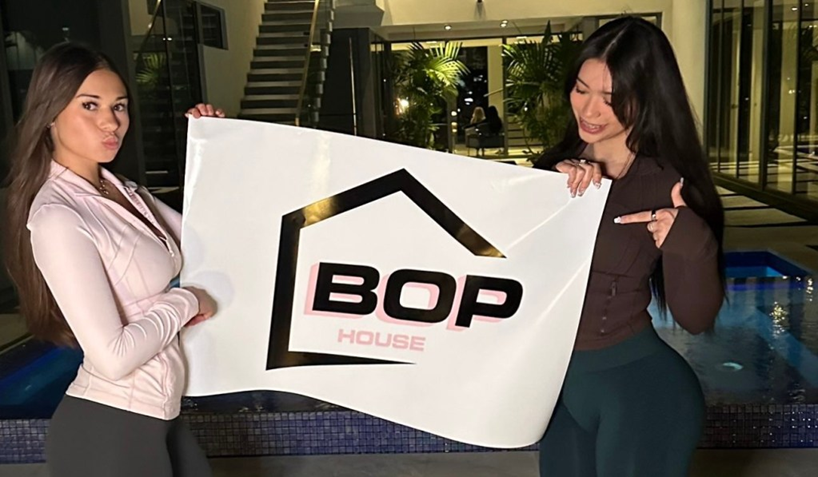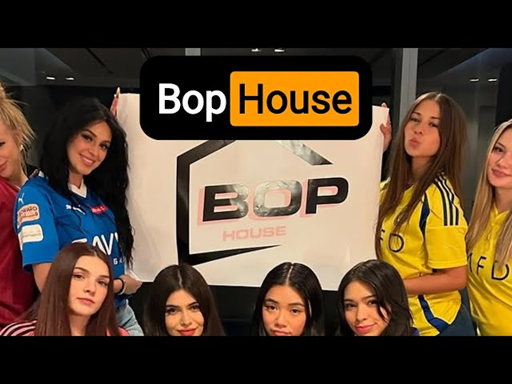Miami, FL – May 2025 – In the age of creator mansions and social media-fueled fame, one all-female OnlyFans house is sparking controversy, admiration, and concern in equal measure.
Known as the Bop House — short for “Baddie On Point” — the mansion is home to eight young women aged 19 to 24, all of whom are adult content creators leveraging social media to promote their subscription-based work on OnlyFans. The luxury six-bedroom, five-bathroom property in Miami is now a viral hotspot, with the creators racking up over 40 million followers collectively across Instagram, TikTok, and other platforms.
Founded in late 2024 by 20-year-old Sophie Rain and 22-year-old Aishah Sofey, the Bop House is one of the first content mansions dedicated exclusively to OnlyFans creators. The project has drawn both praise for female empowerment and independence, and criticism over the growing visibility and mainstreaming of sex work.
Despite their playful poolside videos and prank-filled TikToks, the creators at Bop House are running a highly calculated business. With OnlyFans lacking a native search engine or discovery features, creators are required to build an external digital presence to drive subscriptions. Bop House, through its polished branding and coordinated group content, reportedly earned over $10 million in revenue in a single month.
“We’re not just influencers; we’re businesswomen,” Rain previously stated in an Instagram live, highlighting the behind-the-scenes effort that goes into planning, editing, and marketing their content.

But the house is also facing mounting backlash, particularly after 17-year-old TikTok star Piper Rockelle filmed a video with the creators earlier this year. Though Rockelle did not appear in any adult content or join OnlyFans, critics online accused the Bop House of potentially “grooming” underage viewers. The creators have strongly denied the accusations.
The controversy also comes amid a broader crackdown on sex workers by big tech companies. Meta, TikTok, and other platforms have increasingly shadowbanned, suspended, or removed adult creators despite compliance with guidelines. Without alternative discovery tools, sex workers are turning to community-based models like the Bop House to build visibility and support.
“Creator homes give us safety, support, and creative collaboration,” said one house member in a recent YouTube Q&A. “We’re not doing anything illegal — just marketing differently.”
Industry experts argue that the stigma surrounding adult content creation is being enforced more by tech platforms and outdated laws than the creators themselves. Since the enactment of the U.S. FOSTA-SESTA bills in 2018, platforms have been legally liable for user behaviour, prompting them to aggressively remove content that even hints at sex work, regardless of context or consent.
With films like Anora about sex workers winning big at the Oscars in 2025, the disconnect between cultural visibility and actual protection for sex workers has never been more glaring. “We can make award-winning art about sex workers, but not protect real ones online,” noted Carolina Are, a digital safety researcher at Northumbria University.
Bop House continues to thrive, despite daily online hate and misinterpretations. Their Instagram bio doesn’t link directly to OnlyFans but routes users to a website hub, avoiding direct promotion and dodging algorithmic censorship.
As debate swirls around the role of adult creators in digital spaces, the Bop House remains a lightning rod, raising questions about autonomy, age, and the evolving nature of content creation.

Bir yanıt yazın